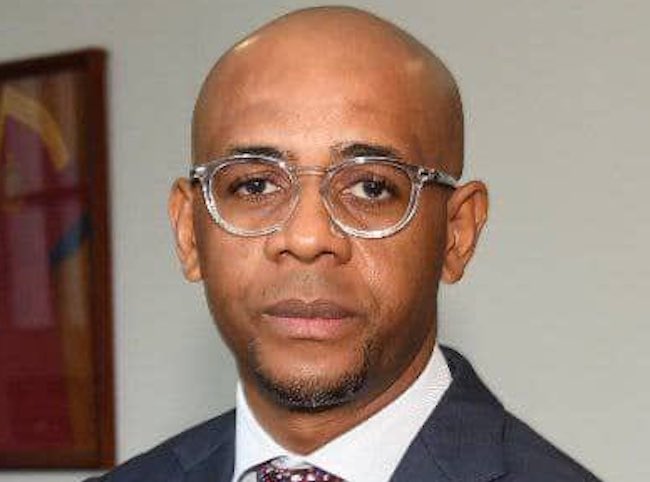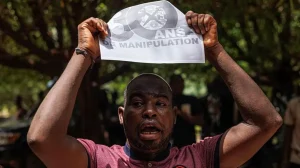
The Director General of the National Financial Investigation Agency (ANIF) in Equatorial Guinea, Baltasar Engonga, has been arrested for allegedly recording over 400 sextapes involving the wives and sisters of prominent figures in the country. The scandal surfaced during a fraud investigation that led to an unannounced search of Engonga’s home and office by ANIF officials, where they discovered numerous CDs containing explicit videos of various married women.
Reports indicate that the footage includes encounters with several high-profile individuals, including Engonga’s brother’s wife, his cousin, and the wives of about 20 ministers, along with the sister of the President of Equatorial Guinea. The videos, said to have been recorded with consent, have since leaked online, sparking a media frenzy and public outcry.
“A shocking aspect of this case is that some of the recordings took place in Engonga’s office, including one incident filmed next to the National Flag,” a local media outlet, Ahora EG, reported. “This unprecedented scandal has raised significant concerns about the integrity of public officials in Equatorial Guinea.”
In response to the scandal, the Attorney General of Equatorial Guinea, Nzang Nguema, acknowledged that while the videos suggest consensual participation by the women involved, the legal implications are complex. “The law does not classify consensual sexual relations as a crime unless there is evidence of coercion or violence,” he stated. However, he stressed the broader risks, including potential public health concerns arising from unprotected sexual encounters.
To address the situation, the government has announced the suspension of all officials found to have engaged in sexual activities within government offices. Vice President Nguema Mangue emphasized the government’s commitment to upholding public ethics, stating, “Ethics and respect are fundamental in our Administration. Irresponsible behaviors that undermine public trust will not be tolerated.”
The incident has prompted discussions about the expected conduct of public officials in Equatorial Guinea, with the government aiming to establish a clearer standard for behavior in both public and private sectors.








